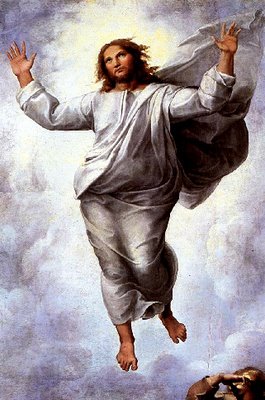
Last time, I explained that Arius believes there can only be one unproduced producer, and that’s the Father. The Son, by consequence, is produced, but there’s nothing controversial about saying that. Arius gets controversial when he tries to explain how the Son is produced. As Arius sees it, if the Father produced the Son with any ‘pre-existing ingredients’, he’d either have to use created ingredients, or he’d have to use some ingredient taken from within himself (those are the only two options). But Arius thinks neither of these are open to the Father.
The Father couldn’t produce the Son with any created ingredients, because the Son is produced ‘before’ anything else. As the Bible puts it, the Son is the ‘firstborn of all creation’ (Col. 1:15), and so when it comes time to produce the Son, so to speak, there simply isn’t anything laying around that the Father could use.
But the Father couldn’t use any of his own ingredients to produce the Son either, for Arius believes that the Father is simple. That is, the Father doesn’t have any ingredients, so he can’t be broken down or analyzed into anything more fundamental. The Father is just one, indivisible thing.
By way of contrast, consider something that does have distinct ingredients. A pan, for example, can be hot on one side, and it can be cool on the other side. But this is only because the pan has different parts that can have their own features. If a pan were simple (as the Father is), the whole thing would have to be hot, or the whole thing would have to be cold. It couldn’t be partly hot or partly cold.
This highlights what it means for the Father to be simple in the sense that he doesn’t have any ingredients: anything that’s in the Father is, strictly speaking, identical to the Father. We cannot say that one portion of the Father has some feature that another portion, or the Father himself, does not have. Any features that can be found in the Father belong simply to the Father himself, not to some part or portion or ‘ingredient’ in the Father.
This is very important for our whole discussion. Arius believes, of course, that the Father is God; but since the Father is simple, then whatever it is that makes the Father God (and let’s just call it the ‘Godhood’), it cannot be an ingredient in the Father. Rather, it must be identical to the Father. According to Arius then, the Father just is God.
This also means, so far as Arius is concerned, that the Father can’t break off a part of himself and use it as an ingredient in the Son. The Father has no ingredients, so he simply can’t produce the Son with some ingredient taken from within himself.
But that exhausts all the options, and so Arius concludes that the Father therefore has to produce the Son without any pre-existing ingredients at all. And according to the definition of creation I gave above, that means the Son is created from nothing. And there you have it.
Next, I’ll turn to Athanasius.
